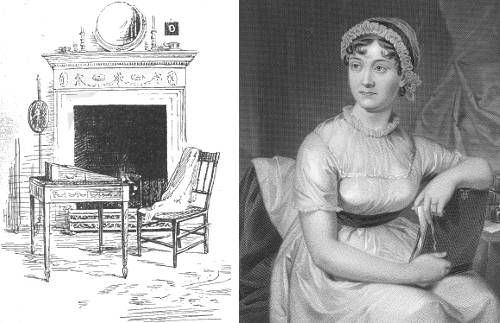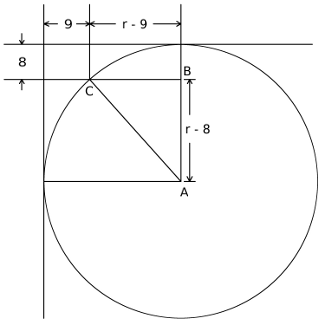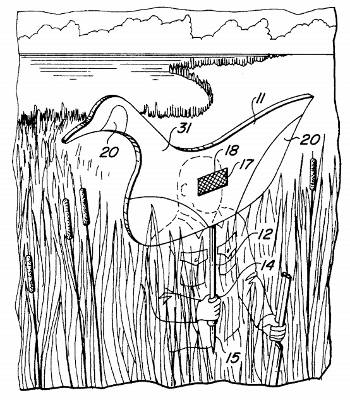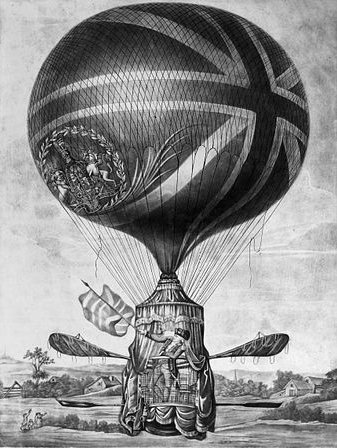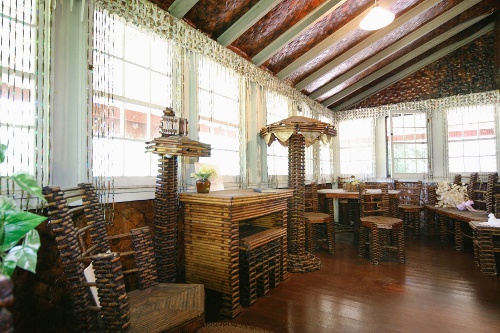
Elis Stenman built a house out of paper. In 1922 the mechanical engineer began designing a summer home in Rockport, Mass., using wood for the frame, floor, and roof but fashioning the walls from newspaper pressed about an inch thick and coated with varnish.
“Actually, I guess he was supposed to cover the outside with clapboards, but he just didn’t,” Stenman’s grandniece, Edna Beaudoin, told the Cape Ann Sun in 1996. “You know, he was curious. He wanted to see what would happen to the paper, and, well, here it is, some 70 years later.”
In 1924 Stenman moved in and began making furniture, also out of newspaper, rolling it into logs, cutting it to length with a knife, and gluing or nailing it into usable finished pieces (one placard reads THIS DESK IS MADE OF THE CHRISTIAN SCIENCE MONITOR).
Stenman died in 1942, and his family has maintained the house ever since, showing it to curious visitors. “I think probably the most common question is just ‘Why?'” Beaudoin says. “We just really don’t know where he got the idea to build a house out of paper. He was just that sort of a guy.”


